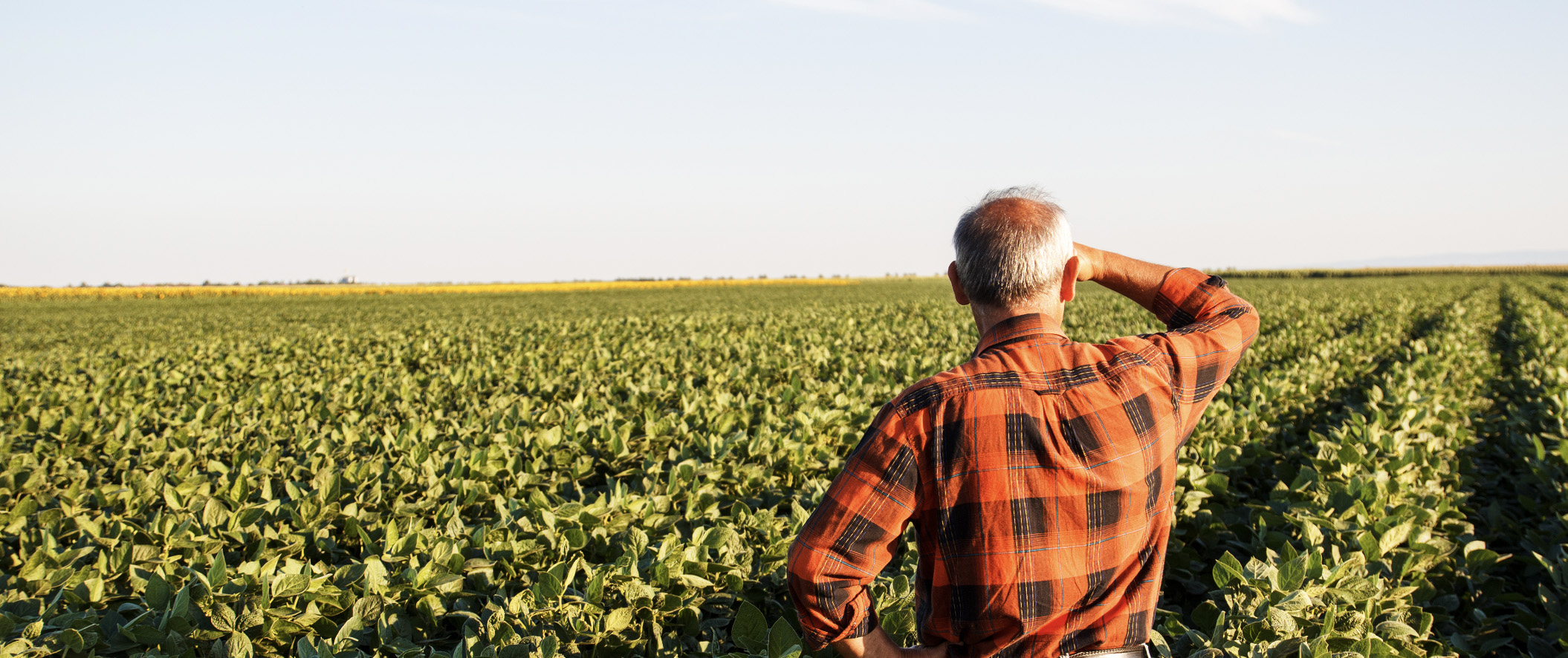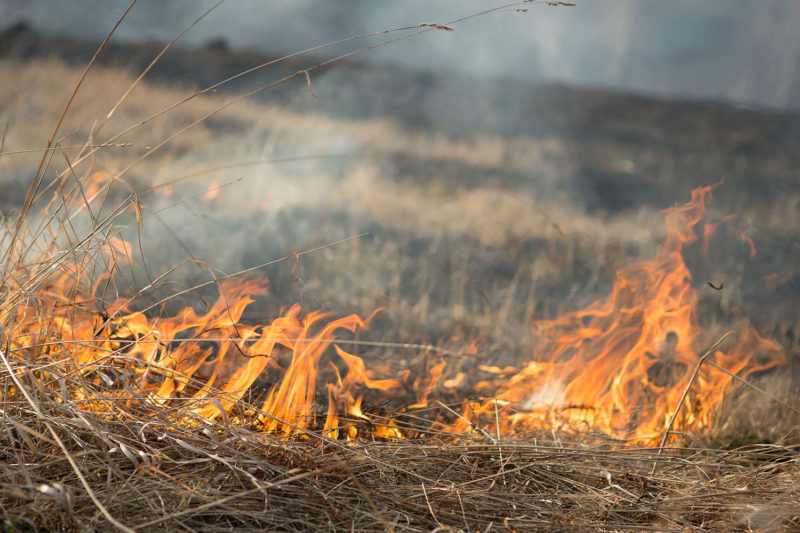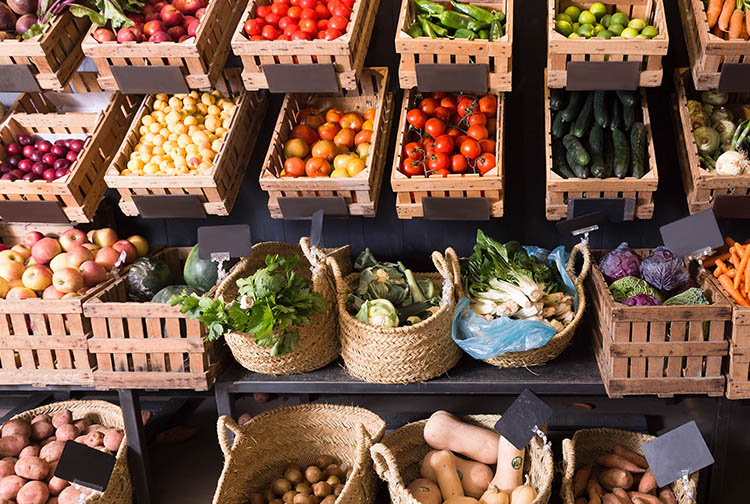

Farmers demand more regulation in order to survive
They denounce the bad practices of the large distributors in the food sector, who adjust the prices of raw materials to such an extent that it is no longer profitable for farmers to produce.
Unió de Pagesos‘ demand is clear: fair prices for producers. A problem that in recent months has particularly affected the dairy cattle business, but which extends to many other sectors of agriculture and livestock farming. At the root of the problem lie the bad practices of the large distributors, and from here new problems arise that compound the critical situation of this sector in our country.
Agriculture contributes 2,307 million euros to Catalonia’s GDP (2020), making it the economic sector with the least impact on GDP, and a far cry from the 153,039 million euros generated by the services sector. Even so, it is still a strategic sector for society as a whole, and mainly because it provides the raw material for the main foodstuffs, it is one of the main sectors that must be maintained and developed. The question, however, is what price we are prepared to pay to maintain it, or rather, what would be a fair price to pay.
The primary sector has declined in recent years.
In recent years, the food sector has seen an irreversible change in the business model: multinational chains have filled the towns and cities of Catalonia with large supermarkets, with prices so low that hundreds of small and medium-sized businesses have been priced out of the market. A situation that has directly and significantly affected the state of health of the farming sector, which, as trade unions, employers’ associations, and town councils denounce, is experiencing a historically critical situation. In 2020, Catalonia registered a total of 454 dairy cattle farms. To give us an idea, in 2010 these figures stood at 813 farms and, even further back, in 1991 there were 4,329.
Currently, the average paid is 33.28 euro cents per litre. This is the amount that reaches the producer, a figure far from the break-even point, which is around 37.31 euro cents per litre, and in some cases even more. The minimum production costs are therefore not covered, and this puts producers in a critical economic situation, which explains the decline in the number of farms.
Catalonia’s food sovereignty at risk
Food sovereignty is understood as the right of the people and countries to create policies that allow them to produce food according to their characteristics and needs. It includes, therefore, not only the right to food but also the right to produce food and for this production to serve to maintain the community as a whole. This is stated in the Political Declaration of the NGO/OSCO Forum for Food Sovereignty.
Catalonia’s food sovereignty could be affected if the economic situation of livestock farmers does not improve. If they cannot compete with the prices of the distributors, and as the Unió de Pagesos warns, they cannot make a living, many of them will end their activity, which in recent years has declined progressively but substantially. The impact on society will be felt in almost all areas.
An issue where every action counts
A loss of activity in the primary sector would lead to a much higher demand for imports, which could affect both the quality and price of commodities. On the other hand, a lack of production would lead consumers to renounce zero-kilometre and local products, which, with a decrease in supply, could also lead to higher prices.
If the situation is to be brought under control, and before it reaches a point of no return, the main problem to be tackled is to pay producers a fair price. The support of the administration will therefore be key in this process, and the management of the distributors will be critical in determining the future of the primary sector. Beyond that, the end consumer also has the power to contribute to change, in his or her case, by making choices. The challenge will be that, aware of the situation, this choice is made according to sustainable criteria and that it guarantees a fair price for the whole production chain.
Do you want to be the first to receive the latest news about 11Onze? Click here to subscribe to our Telegram channel





Bon informe, ens diu q els q anem a botigues de proximitat fem bé, ara falta que igual que les grans multinacionals disposen de bon tracte i seguretat, apliquem aquestes mateixes maneres al sector primari exigint el pagament d’un preu just pel kg de taronges, cebes, paraguaios, melocotons…etc o el litre de llet o l’hora d’un pagès. Permetent així no sols que sobrevisqui el sector sinó també el planeta🍇🍉🍊🥭🥕🍅 🌍
👏
Defensem lo nostre!!
L’alimentació de qualitat es la base per estar més fort animicament i no dependre de tants medicaments i receptes…
I la Unio de pagesos? Mentres ens barallem, els grans poductors, guanyen terreny. Aixo tambe podria sortir al reportatge. Jo si tingues una Web on anar a buscar la verdura KM0 i aniria.
Ben vist Ferran, consumir més productes de proximitat sens dubte serà el camí per arribar una producció més justa. Busca quines opcions tens a la teva zona, ja que cada vegada apareixen més productors km0 i de proximitat, segur que en trobes algun!
Cal seguir apostant incrementalment per a la nostra pagesia. Gracies a aquest sector podem gaudir d’aliments de primera qualitat, sempre tant beneficiosos per a la nostra salut i benestar
Totalment, David! Un sector molt necessari però alhora poc valorat. Per sort, com a consumidors tenim l’opció de posar el nostre granet de sorra per a canviar-ho.
La productivitat en l’alimentació en un país es un dret dels ciutadans i un dure de l’administració
Que els productors estiguin en aquest nivell indica la mala gestió del govern per no defensar en aquets que produeixen fo t de vida i per protegir als distribuïdors
Tota la raó Alicia
Molt entenedor 👍
Moltes gràcies Josep
Em sorprèn que la producció d´aliments sigui considerat un dret d´un país. Penso que és un deure per part del govern procurar que el país que dirigeixen sigui autosuficient en alimentació bàsica, sense especificar tipus ni classes de conreus. De sobres sabem que en cas per exemple de guerra, qui passa més gana són els habitants de les ciutats. Un tros de terra dóna per molt. Sembla doncs mol evident que un país ha de ser autosuficient sempre que el clima ho permeti, es clar. Serà un error molt gros si els catalans no en som conscients. Gràcies per posar-ho sobre la taula
Moltes gràcies Mercè pel comentari 💛
👍👍👍